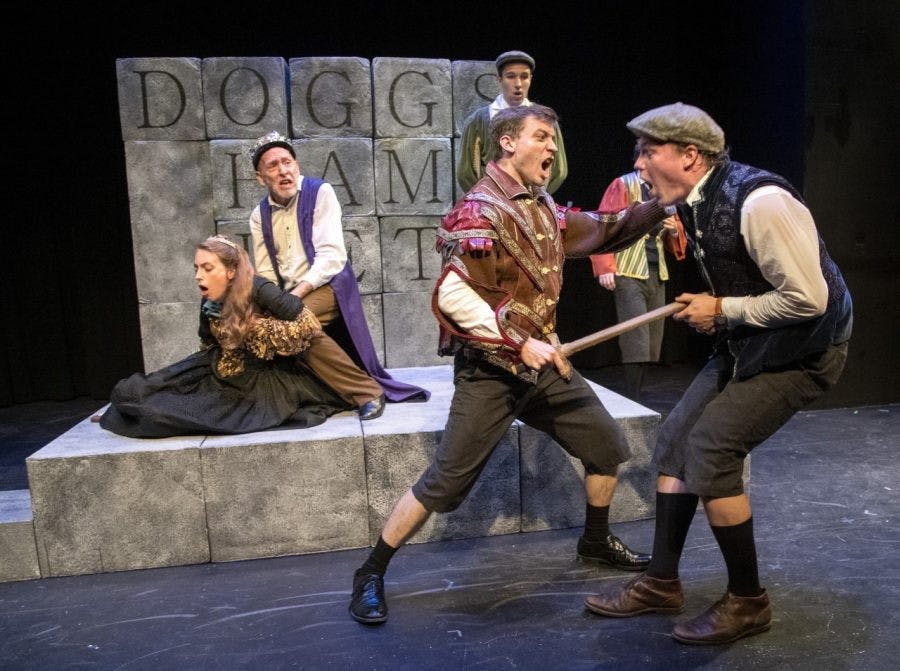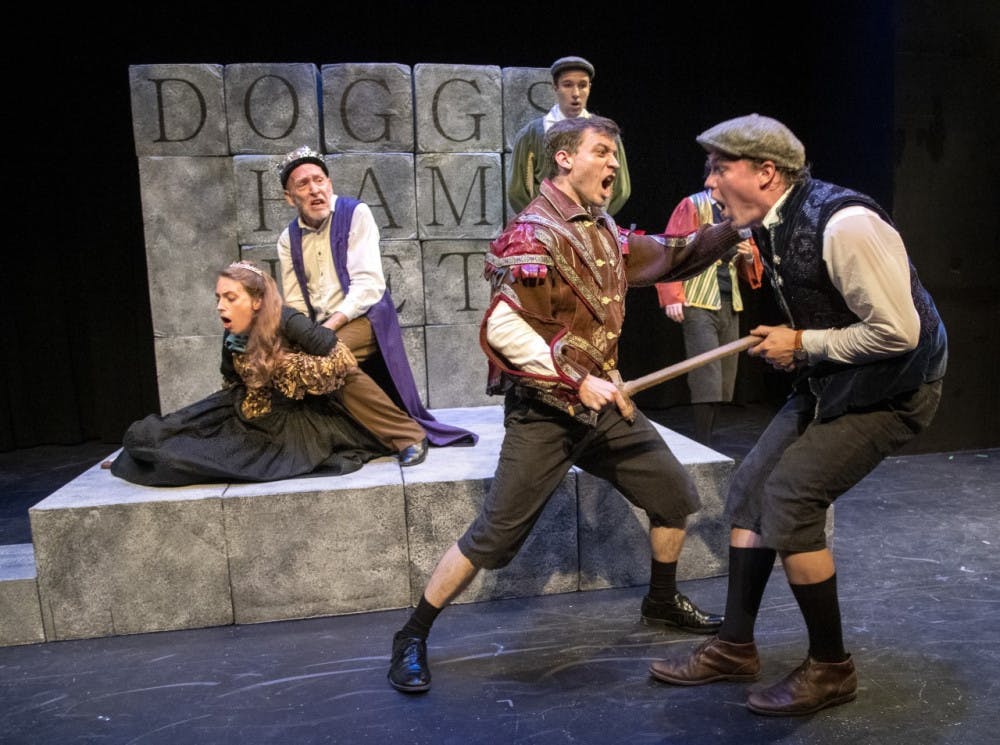So, you want to be a Broadway star? For a few chosen Middlebury students, this dream becomes a reality each summer with the Potomac Theatre Project.
The Potomac Theatre Project, or PTP/NYC, is a Middlebury Theatre Department program that allows undergraduate students to be a part of the professional theatre world while still studying at the college. The project was founded in 1987 by Professors Cheryl Faraone, Richard Romagnoli and Boston University Professor Jim Petosa who were “determined to establish a dynamic and provocative company that would also provide a bridge to professional theatre for aspiring young students,” according to the company’s website. Students work alongside Actor’s Equity professionals and professors on two different productions that run in an Off-Broadway theatre in New York City for five weeks throughout the summer.
This program is unique to Middlebury and cannot be found at any other liberal arts college. Students are able to see what the “real world” of professional theatre is like while working with established actors and learning from their professors. Many of the Actor’s Equity professionals are Middlebury alumni who were originally students at PTP.
Students audition for the two summer productions at the college in a more personal setting than others in the industry. Zachary Varricchione ’21 said this was a major draw for him to do the program because he knew how other students had to deal with “huge cattle-call type auditions” to work in professional theater. The addition of having the program led by Middlebury professors made his decision even more clear. “To have a program that’s run by your own professors with intimate auditions is almost unheard of,” he said.
Madeline Ciocci ’20, who has been a part of PTP for two summers, says that the special connections between students and Equity actors are also what make the program so impactful. “It’s really exciting to get to know them, their craft, and their process, to learn from them.”
Varricchione said that observing the professionals at work contributed to “some of the biggest artistic growth I had this summer...[they] really inspired me to do my best and take some of their habits to raise my work to a higher caliber.”
Students at PTP are incorporated into every facet of the production, not just performing onstage. The entire cast and crew work together to help with marketing, business planning, and even set and costume design.
This deep-dive into the intensity of the Off-Broadway world is eye-opening and exciting for students who have been involved in theater previously. “I’ve been doing theatre for almost my whole life, but not until I did PTP did I understand not only how much emotional work theatre can be, but also how exhausting it can be in a physical sense,” Ciocci said. “It’s a life that’s totally and completely exciting, but also one that takes a wild amount of constant energy and commitment.”
The added responsibilities involved in being a member of the company is more realistic to what the professional world is like, which Varricchione appreciated coming from a college theater setting. At shows at the college, cast and crew members often have their designated roles with not that much overlap. PTP is more the “classic theater company experience, where the actors are in charge of run crew, and building sets, and everything else,” said Varricchione.
This season, the company put on two productions, “Dogg’s Hamlet,” “Cahoot’s Macbeth,” two plays often performed together by Tom Stoppard and “Havel: The Passion of Thought,” written by Harold Pinter, Václav Havel and Samuel Beckett. “Dogg’s Hamlet” is a play where three young boys try to confuse a driver by speaking “Dogg,” a language that is comprised of English words that mean the opposite of what speakers are used to. The play then turns into a 15-minute interpretation of “Hamlet.” The same cast also performed “Cahoot’s Macbeth,” which consists of actors performing Macbeth in a controlling state while under surveillance by a hidden government agent.
The other cast performed “Havel: The Passion of Thought,” which is composed of five one act plays that expose the challenges living in an oppressive Communist state. These plays were once considered so controversial that they were banned in Czechoslovakia, leaving actors to perform them in private homes and distribute them illegally.

Students and alumni engaged in combat during a performance of “Dogg’s Hamlet.”
This season’s choice of plays is in line with PTP’s focus on art that critically examines the world outside of the theater. On their website, the organization states how since its inception, PTP’s work has “addressed the necessity and difficulty of art, homelessness, censorship, pornography, AIDS, totalitarianism, apartheid and gender wars -- always in passionate, deeply human terms.”
When asked about what he wanted audiences to take away from “Dogg’s Hamlet” and “Cahoot’s Macbeth,” Varricchione said that the cast hoped that “the audience would think about how their actions have been complicit and how they have been resistant to oppressive systems today.”
Ciocci, a member of the “Havel” cast, felt that when she was “working on this set of plays that investigates resistance and dissidence under an oppressive regime, it’s impossible to not think about how timely the content feels.”
She elaborated on a specific moment in the play where a character, Stanekova is forced to decide whether or not to protest a fellow artist’s incarceration because of his activism or to “continue to subtly fight while existing within an unethical system.” She felt that this crisis when deciding which way to act against oppression to be relevant in today’s world where “it’s not clear which actions will yield the best results, and which actions you’ll be able to live with and respect yourself for.”
PTP co-founder, co-artistic director, director of “Dogg’s Hamlet,” “Cahoot’s Macbeth” and Chair of the Theatre Department Cheryl Faraone stated in the season’s introduction video that these plays are “the best kind of theatre; it makes you think, and it makes you feel, which has been kind of a PTP mantra for most of our 33 years.”
Off-Broadway babies: Potomac Theatre Project

COURTESY PHOTO
Olivia Christie ’19, Emily Ma ’21 and Katie Marshall ’21 in “Cahoot’s Macbeth.”
Olivia Christie ’19, Emily Ma ’21 and Katie Marshall ’21 in “Cahoot’s Macbeth.”
COURTESY PHOTO
Comments



